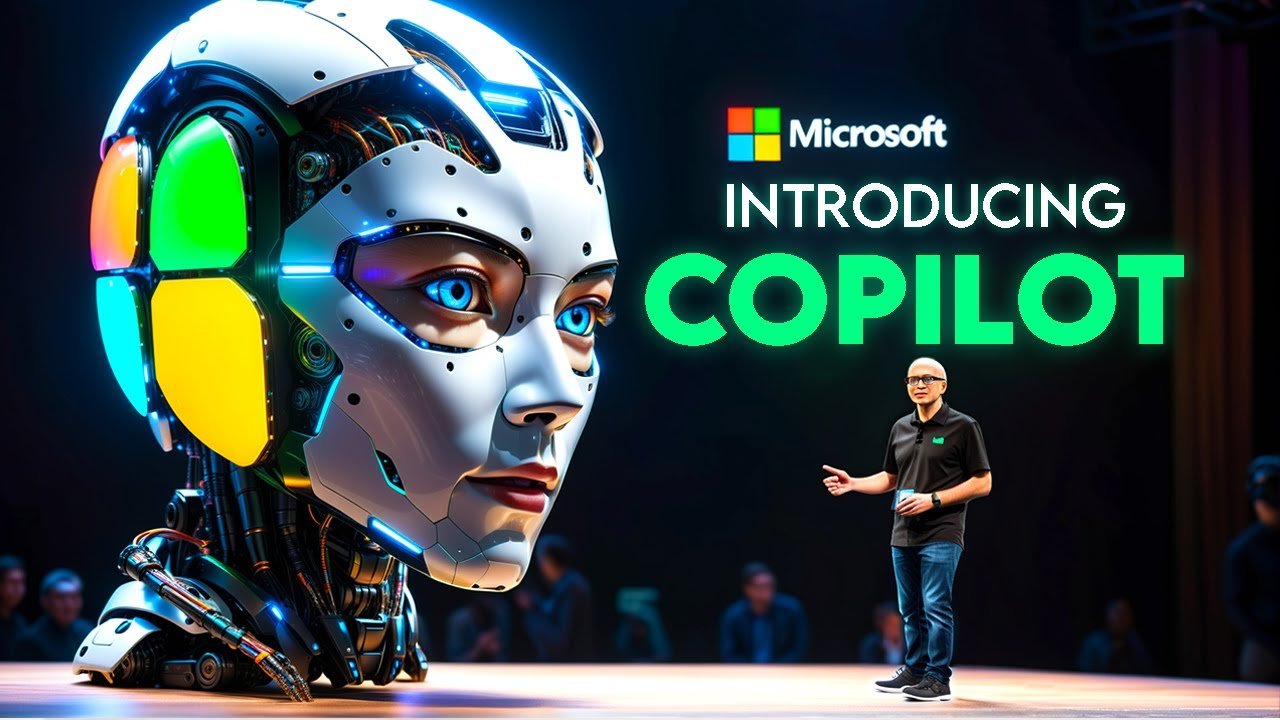Microsoft Copilot: AI-Assisted Software Development Revolution

Microsoft Copilot takes a revolutionary step in AI-assisted software development, fundamentally changing how developers write and understand code. Moreover, this cutting-edge tool leverages advanced AI algorithms to offer developers intelligent coding assistance, greatly improving efficiency and accuracy. Additionally, Copilot analyzes vast code databases and suggests optimal coding solutions, streamlines debugging, and even generates substantial code segments.
I. Introduction
- Microsoft Copilot, an advanced AI tool, aids software developers with real-time coding suggestions and solutions. Additionally, it seamlessly integrates with different coding environments. By using machine learning to analyze existing code, the tool streamlines development, boosting coding efficiency and creativity.
- The evolution of AI in software development has been marked by significant advancements. From simple automated tasks to complex problem-solving, AI has evolved to play a crucial role in coding, debugging, and software optimization, leading to the development of sophisticated tools like Microsoft Copilot.
- This discussion aims to explore the impact and capabilities of Microsoft Copilot in the realm of software development. It will cover how Copilot is transforming coding practices, its technical underpinnings, implications for developers, and its role in the future trajectory of AI-assisted software development.
II. Development and Features of Microsoft Copilot
- Microsoft Copilot’s development marks a milestone in integrating AI into software development. Microsoft and OpenAI collaborated to transform it from basic code assistants into a sophisticated tool capable of understanding and generating complex code, signifying a significant leap in the practical application of AI in software engineering.
- Copilot’s core features include real-time code completion, bug detection, and context-aware suggestions. Its ability to understand natural language queries and generate corresponding code snippets revolutionizes the coding process, making it more intuitive and efficient, especially for complex and repetitive tasks.
- Copilot seamlessly integrates with popular development tools like Visual Studio Code. This integration enables developers to use Copilot within a familiar environment, enhancing their existing workflow with AI-powered assistance without the need for significant changes to their usual coding practices.
- Compared to other AI tools, Copilot stands out with its extensive training on diverse code repositories, high code generation accuracy, and adaptability to various coding styles. These traits make it a valuable asset for developers of all levels, setting it apart in AI-assisted software development.
III. Impact on Software Development
- Microsoft Copilot significantly enhances coding efficiency and accuracy. By providing real-time code suggestions and automating repetitive tasks, it reduces development time and errors, allowing developers to focus on more complex and creative aspects of coding, thus boosting overall productivity in software development.
- Copilot alters the role of software developers, shifting their focus from writing every line of code to more strategic tasks such as design, problem-solving, and quality control. This shift elevates the developer’s role to a more supervisory and creative position, leveraging AI for routine coding tasks.
- In project management and team collaboration, Copilot acts as a facilitator, streamlining workflows and improving communication. By providing consistent code suggestions, it helps maintain coding standards across teams, enhancing collaboration and reducing misunderstandings or inconsistencies in large-scale projects.
- Real-world applications of Copilot showcase its versatility across various sectors. Success stories include its use in accelerating app development, simplifying complex code in data science projects, and assisting in educational settings to teach programming concepts, demonstrating its wide-ranging impact in the software development industry.
IV. Technical Aspects of Copilot
- Microsoft Copilot is powered by sophisticated AI and machine learning technologies. It employs deep learning models, specifically trained to understand and generate code, enabling it to provide contextually relevant suggestions and learn from user interactions to refine its code generation capabilities.
- Copilot’s training involves diverse data sources, primarily vast repositories of public code. This training methodology allows it to understand various coding patterns and languages. Its algorithms are constantly updated with new data, ensuring its suggestions remain relevant and effective across different coding scenarios.
- Security and privacy are paramount in Copilot’s design. While it processes a massive amount of code, measures are taken to ensure that sensitive information is not compromised. Regular audits and adherence to data protection standards are part of its operational framework, ensuring user data confidentiality.
- Copilot features continuous learning and adaptation, enabling it to evolve with the user’s coding style and preferences. This dynamic learning approach ensures that the suggestions become more personalized and accurate over time, adapting to the unique needs and challenges faced by individual developers or teams.
V. Challenges and Limitations
- Despite its advanced capabilities, Microsoft Copilot faces technical limitations. Its dependence on pre-existing code means it may struggle with highly innovative or unique coding problems. Additionally, its suggestions are not always error-free, requiring careful review and oversight by human developers.
- Ethical and legal concerns arise with Copilot’s use of publicly available code. Issues like potential copyright infringement and the ethical implications of AI-generated code, particularly in terms of originality and ownership, are significant challenges that need addressing.
- Copilot’s ease of use could lead to dependency and skill dilution among developers, especially beginners. There’s a risk that reliance on AI for code generation might impede the development of deep coding skills and problem-solving abilities that are crucial for professional growth.
- In response to criticisms and controversies, Microsoft and Copilot’s team actively engage in dialogue with the developer community. They work on refining the tool’s algorithms, addressing legal and ethical concerns, and educating users about best practices to mitigate dependency and skill dilution risks.
VI. Future Prospects and Developments
- Microsoft Copilot’s potential future features and enhancements involve more sophisticated AI models understanding complex programming concepts, improved language versatility, and enhanced customization options to match individual developer preferences and project requirements.
- Copilot’s future integration with emerging technologies like quantum computing and the Internet of Things (IoT) could revolutionize these fields. By understanding and writing code for these advanced technologies, Copilot could significantly lower the barrier to entry and accelerate development in these cutting-edge domains.
- Copilot is likely to be a trailblazer in shaping future AI-assisted tools. Its success could pave the way for more advanced, intuitive, and adaptive AI tools in software development, potentially leading to a new era where AI and human developers collaborate seamlessly to tackle increasingly sophisticated technological challenges.
Conclusion:
In conclusion, Microsoft Copilot is a significant milestone in AI’s integration into software development. It enhances efficiency, streamlines workflows, and democratizes coding, impacting the industry profoundly. Despite challenges such as technical limitations, ethical concerns, and potential skill dilution, Copilot provides a glimpse of a future where AI and human expertise collaborate closely. As it evolves, Copilot is poised to reshape software development, addressing limitations, driving innovation, and shaping AI’s role in crafting future technological solutions.





